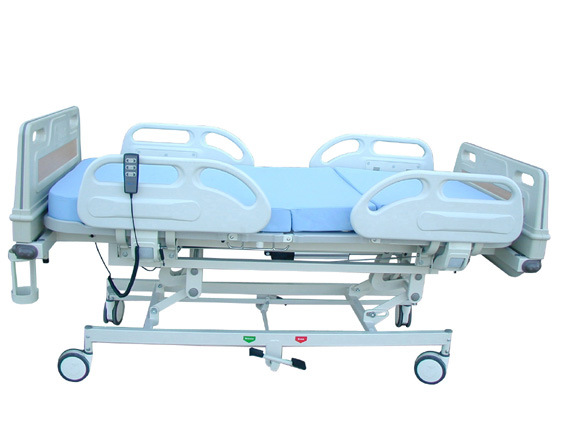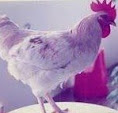Me thinks that if TTSH is sued, it should be liable for at least 80% of damages sustained as a result of the fall to Ivy Teo's 74yr old father (Mr Teo).
References (Published ST forum: 08Feb2012):
Patient falls after wife's request goes unheeded
Patient reminded to use call bell if he needed help
 [img source]
[img source]Reasons:
- BOTH Family and hospital had noted the fall risk of the patient to be high.
- The family, by their judgement had explicitly asked the hospital to raise all 4 cot sides of the bed to prevent against the patient falling.
- The hospital refused/ ignored their request thinking that they knew better and insisted upon keeping the 4th cot side lowered.
- The fact that TTSH was aware of Ms Teo's father's multiple strokes meant that there would be a level of uncertainty regarding his behavior. The hospital was thus presumptuous to assume that since "Mr Teo had consistently demonstrated the ability to call for nurses' assistance via the call bell at his bedside" that there would be little chance of Mr Teo attempting to get up without sounding the call button- a repeat stroke/ delirium being of increased probability.
- Whilst "raising only three of the four cot sides of the bed as this has been shown to help them feel less anxious or 'trapped', and also reduces the chance of a serious injury should they attempt to get down from the bed unassisted", another key feature of falls prevention should be the direct observation of patients; and it was this important feature that the TTSH high fall-risk ward lacked.
- It might be argued that but for the lowering of the 4th cot side, Mr Teo would not have fallen since the time taken for a patient to fall from a bed with all sides up would obviously have been longer and the attempt much more visible than the same scenario but from a bed with one cot side down; the severity of injures resultantly sustained not withstanding. Given the explained short duration in which Mr Teo sustained his fall, the nurse would have easily heard/ noticed Mr Teo's actions and taken immediate remedial action to prevent such a fall/ assist him as necessary. Keeping in mind that most of the ward patients would have been stroke patients of poor eyesight/ senior age and possibly disorientated due to the dim light of night, more hospital staff should have been in attendance so that someone would always have a constant eye on the patients, most of whom would have had 1 cot side down and especially so in a 'high fall risk' cubical/ ward; an adequate staffing system should have been in place so that when one nurse attends to a patient, another is found especially in a 'high fall risk' cubical/ ward.
- Notwithstanding the fact that the 4th cot side was down due to hospital policy, Mr Teo sustained his fall whilst in a 'high fall-risk' cubicle at TTSH. It would be the duty of the hospital as part of its care of the patient to ensure the safety and treatment of patients within its care. Mr Teo fell due to a lapse in the provision of care by the hospital and as a result of this lapse in care compounded by inflexible hospital policy and lack of interest in the concerns, reservations/ suggestions of immediate relatives; other accessory comfort/ fall prevention measures notwithstanding.
- As a result of his fall that night, Mr Teo "sustained a cervical injury, which led to further weakness in his limbs" " He suffered further weakness to his limbs and could no longer sit up or stand. He also could not eat or relieve himself unaided. He had to be fed blended food and had a catheter inserted.
For days after the incident, he was stressed and often delirious. A few days later, he had another stroke."
Given the trend of events, I feel that TTSH should compensate Mr Teo at least 80% of his assessable damages sustained as a result of the fall in TTSH's 'high fall risk' cubical/ ward which no doubt was due to TTSH's lapse in it fall prevention precautions as a result of a possible staff shortage in the attendance of patients and blatant ignorance to the concerns of patient's relatives, most of whom would have known the patient's nature, character and personality change post illness for the most part of their lives.
PS: As a side note, the Medical Board Chairman (TTSH) said "raising only three of the four cot sides of the bed as this has been shown to help them (patients) feel less anxious or 'trapped'": if the mindset of patients is so compromised such that they even feel 'trapped' in such a bed, then wouldn't more nursing staff be needed deployed to care for these patients rather than excuses and high lofty ideas about patient welfare be bandied around by professors? The fact remains: the patient fell, hurt his spine and became paralyzed. Stressed by his condition, he suffered another stroke and is now totally disabled and bed-bound.
"An old man falling while in the care of a hospital shows lack of care." ~ how true is this statement.
Sometimes, in Singapore, its just not economically productive to say, yes we're sorry.
===========
At/ related:
HWZ:
10Feb2012: TTSH: Patient fell off the bed for his own good.
SBY:
10Feb2012: TTSH: Patient fell off the bed for his own good.
A1:
10Feb2012: TTSH: Patient fell off the bed for his own good.
MCF:
10Feb2012: TTSH: Patient fell off the bed for his own good.
SGC:
10Feb2012: TTSH: Patient fell off the bed for his own good.
SGF:
10Feb2012: TTSH: Patient fell off the bed for his own good.
REACH:
10Feb2012: TTSH: The patient fell off the bed for his own good.

No comments:
Post a Comment